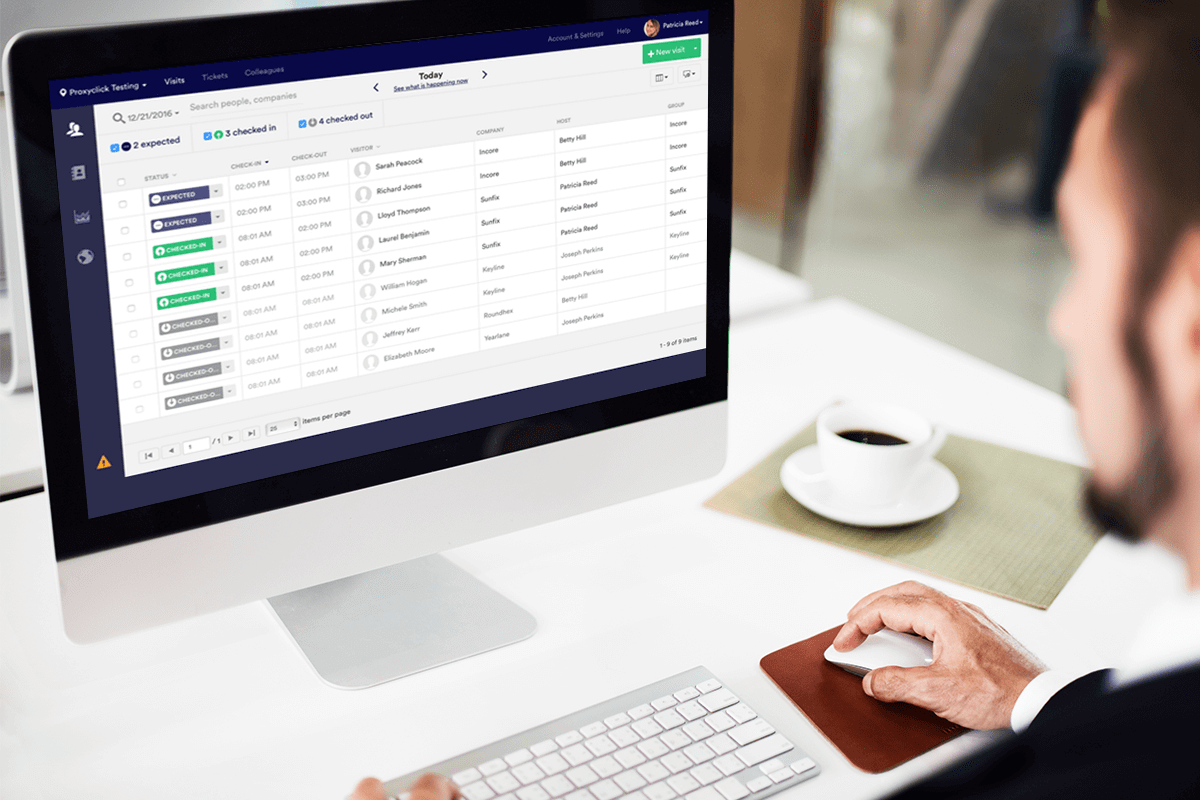We, as a society, seldom pay attention to little details that make things work. We do not think about what makes the water run in our kitchen sink and how elevators go up and down in the buildings where we live or work. We focus on what we consciously do, like pressing a press button in the elevator to get to the floor that we need. Still, if these things did not exist, this would totally change our lives. The water would not run in our kitchens, and we would climb up and down the stairs on the 24th floor because the elevator won’t go.
The same is true for the business. C-level management does not often think of how their tasks are being fulfilled, whether the tools are appropriate, and the pay is encouraging. They are mainly focused on the performance itself and on the general results.
Do C-managers ask themselves how well their own work and communication on their level is organized, and whether the processes are always effective?

Of course, they do.
In many cases, not automated document workflow causes not updating versions of critical documents, loss of classified documents, and unsharing important documents to the executive group. This cannot be called chaos, but this is enough for a strategic loss. And this will not happen if the company has timely, well-organized, and shared records. In this case, all the records contribute to streamlining business processes.
Public authority bodies also work with the documents and records. They collect, for example, statistical data regarding citizens on a big scale for decision-making. And it is of great importance to have a true picture of the situation as well as to share this information with the right colleagues promptly. Of course, decisions can be different, but the initial incoming information should be absolutely unbiased and explicit. It is interesting to note that not long before the BLM movement appeared in the USA, the Canadian government significantly raised the hourly pay rate to unprofessional workers. Canadians made research and held a massive campaign proclaiming that it was just the right thing to do.
The systems that store and organize files have an unnoticeable but big impact on companies and organizations.
What Are Records Management Systems?
In these systems, companies, authority bodies, and individuals can keep and organize all types of data files that they consider important.
If you work with big volumes of sensitive data you need a place where to store it, keep it safe, and a mechanism to promptly manage it.
These can be medical files of patients, sensitive information of police departments, or records of cow dairy farms. The data format can vary: text files, images, sound files, video files, and other types of records.
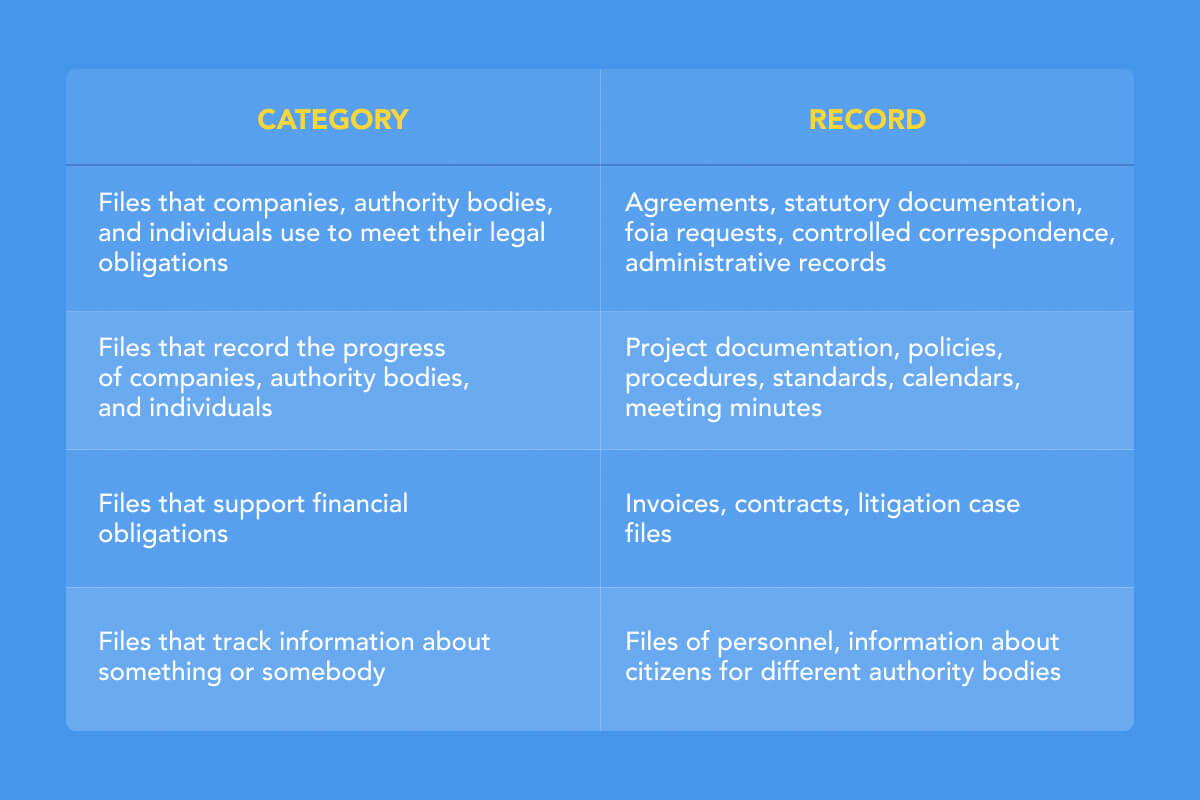
As the table shows, Records Management System can manipulate many categories of data. They can perform certain actions with this data. The functions of a particular RMS depend on its logic, but they mainly come to:
- Create;
- Store;
- Manage;
- Delete.
Benefits of Electronic Records Management Systems
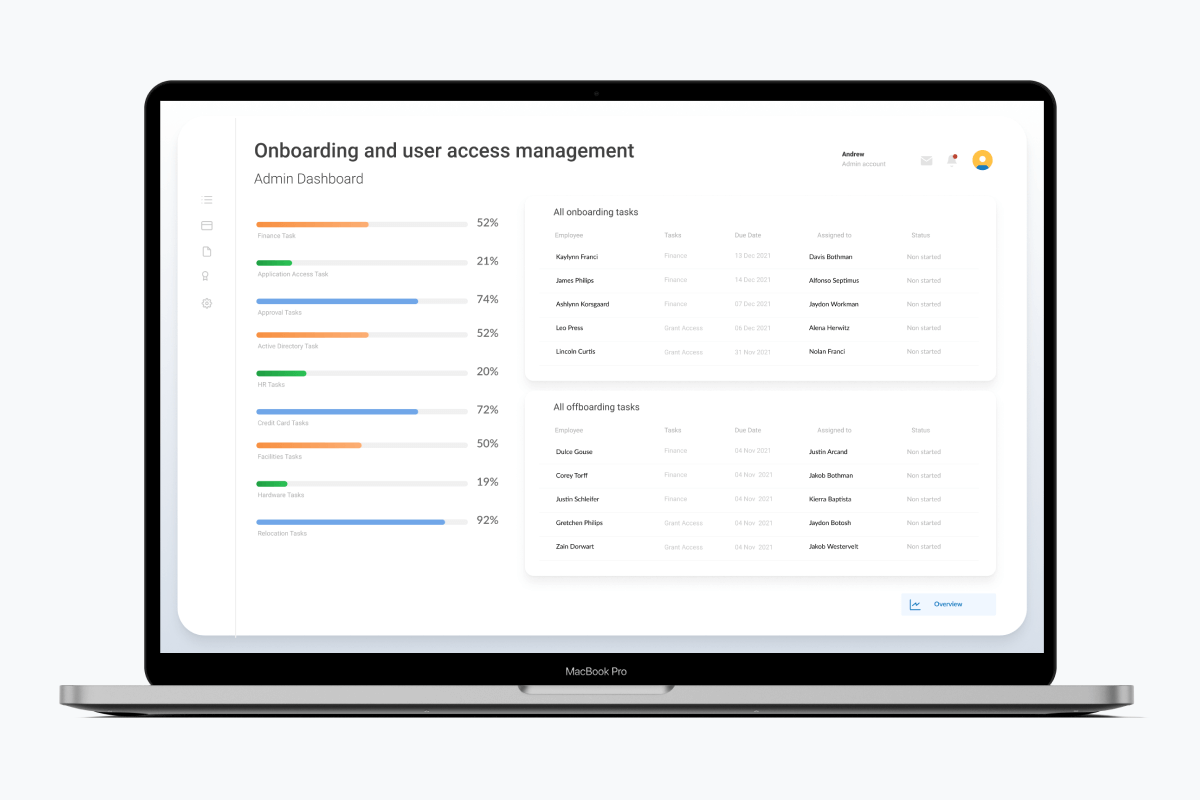
Profit and non profit entities most often request from RMSs to store large amounts of classified files, their security, sorting of data for statistical needs, and automation of manipulations with data.
Storing
You can have your important files processed and easily shared.
Sorting
You can learn statistical data by enquiring about any parameter or piece of content of a file, get results, and sort them according to any parameter of the file.
Security of sensitive records
When you have an RMS installed, you can keep your classified files in a standardized, secure way.
Automatic procession of files
Depending on the customization, the automatic workflow of your files can meet any expectations of clients.
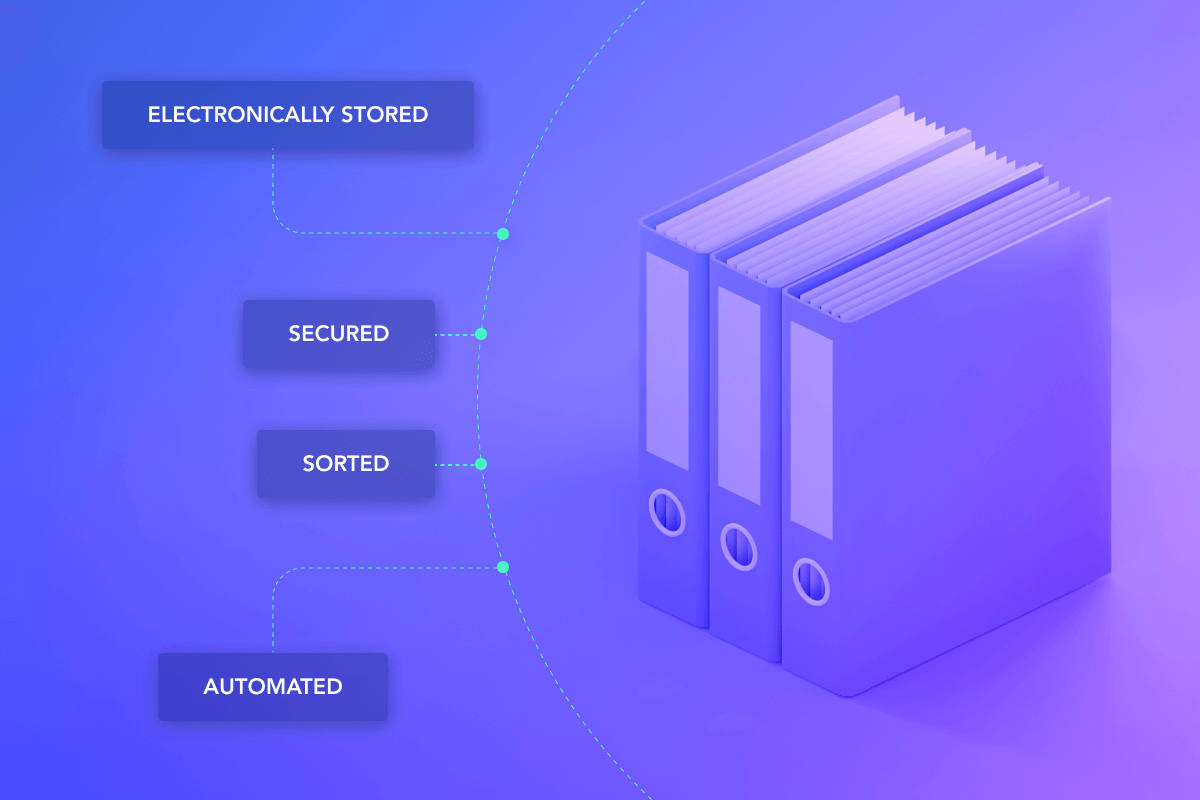
Custom Records Management System vs. SaaS
If you work with big volumes of classified files, you can consider systems that do it professionally.
To manage your records, you can order custom development of RMS for your company or organization, or you can rent a Software as a Service system. It is interesting to compare them because each type solves its own issues. And you can make an aware decision about which type fits you better or none.
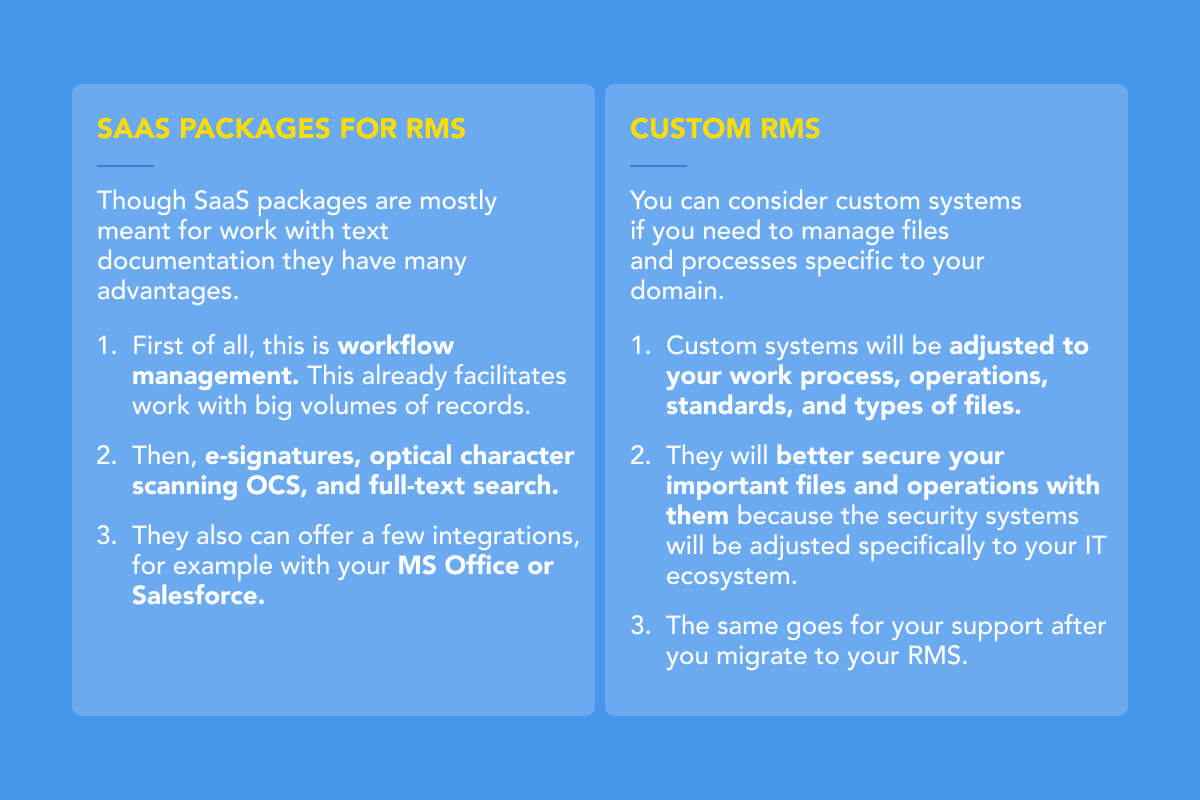
As well, custom systems can offer a tray of advanced functions for comfortable management of your Records Management System. For example, a Single entry is when you can enter different modules of your large system with the same login. The system will recognize you and give respective access permissions throughout the modules.
You can also have the Single access function. Here, you can access many modules of the large system from a single workstation. And a Single database allows users with respective persimmons access to the database of different modules.
Standards for Records Management System Development
If you are considering an outsource developer company to order custom automated records management systems, you should probably, among others, make sure that the company complies with the international standards for the development of RMSs such as:
ISO 15489, ISO 30301. ISO 30300. ISO 23081-1:2006, ISO 23081-2:2009, ISO 23081-3:2011, ISO 23081-3:2011, MoReq2010, BS 10008:2014, BIP 0009:2015 PDF.
These standards are universally accepted to ensure the best ways of file procession for companies and organizations.
They list all formats of records for RMSs and provide a checklist for the frameworks to comply with. They also establish auditing of procedures in these systems and delineate different principles and practices.
What Industries Benefit the Most from Records Management System Development
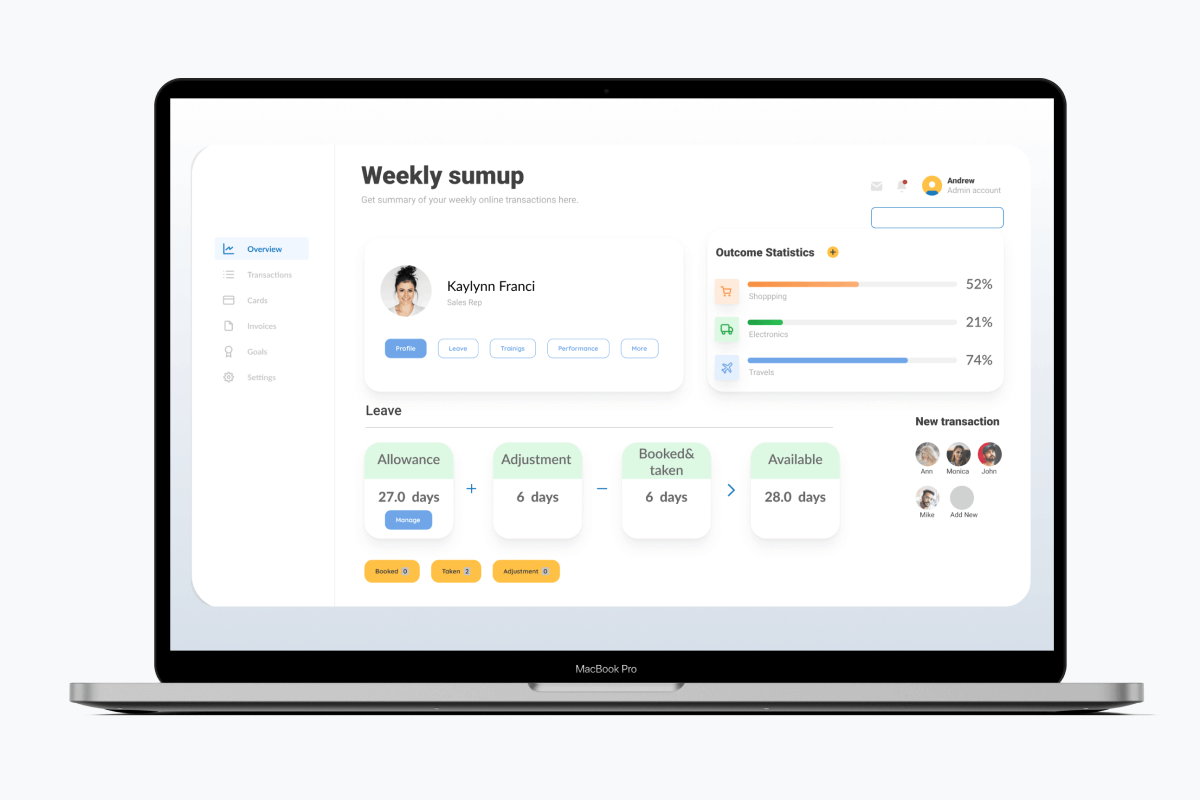
Companies in any industry will benefit from a Record Management System if they work with a huge amount of records. But still, there are industries and sectors that are greatly advised to install RMSs. These are industries and sectors that work with information as their main activity. That is #4 in the table of Categories of records. These entities work in the government sector, finance, legal, and security.
Also, RMSs are advised to any large holdings, consortiums, or NGOs as they operate large volumes of records. They are also advised to companies and organizations, irrespective of the industry, if they collect personal or sensitive data. Irrespective of whether they gather such data for further marketing objectives or as their main activity. In case the data fails to be managed in an appropriate manner, some organizations can be fined, for example, with a $4.3M penalty for HIPAA violations for exposure of personal medical data. That is why RMSs are truly popular.
Public Sector: Law Enforcement RMS
Police officers can work with law enforcement records management systems to find information about vehicles or individuals regarding breaches of the law. By the way, these systems can find not only individuals and vehicles but also properties, organizations, or locations.
It is interesting to learn the logic behind law enforcement RMSs. They apply Master Name Indexes to any important subject that is related to an event. Then, they link master name records to events. Events, for example, can represent accident reports, licenses, or permits. That is why triggering a master name will show all the linked to it events. And in this way, officers will learn information about whatever or whoever they need.
All authority bodies use some type of RMS to comply with the regulations too. For example, the US Department of Interior follows the Records management program according to The Federal Records Act (U.S.C. 31) that “requires all federal agencies to maintain records that document their activities, file records for safe storage and efficient retrieval, and dispose of records according to agency schedules.”
In particular, Section 3102. Establishment of program of management says:
“The head of each Federal agency shall establish and maintain an active, continuing program for the economical and efficient management of the records of the agency.”
Of course, RMSs developed for the authority bodies are custom-made and have a very high level of security.
Healthcare: Electronic Health Records System
Electronic health records management(EHR) systems or electronic medical records management (EMR) systems are the solutions for healthcare institutions that choose the course of digital transformation. It is essentially a document management system developed for medical institutions. Using EHR or EMR, it is possible to store all the vital medical data in one secure place. This data can include and is not limited to:
- Medical records of all the patients;
- Electronic recipes;
- Data about the patients collected from smart devices;
- Data about healthcare institutions management;
- Data about clinical trials of patients.
Finance: Records Management System
The financial sector generates an enormous amount of sensitive documents that need to be preserved for the smooth operational activity of any institution. More than that, the financial sector has higher requirements for the security level of the records and documents, which is why SaaS solutions don’t seem to be an option here. Here are some examples of records management systems software in the financial sector:
- Insurance records management system;
- Investments records management;
- Banking records management systems.
Сonclusion
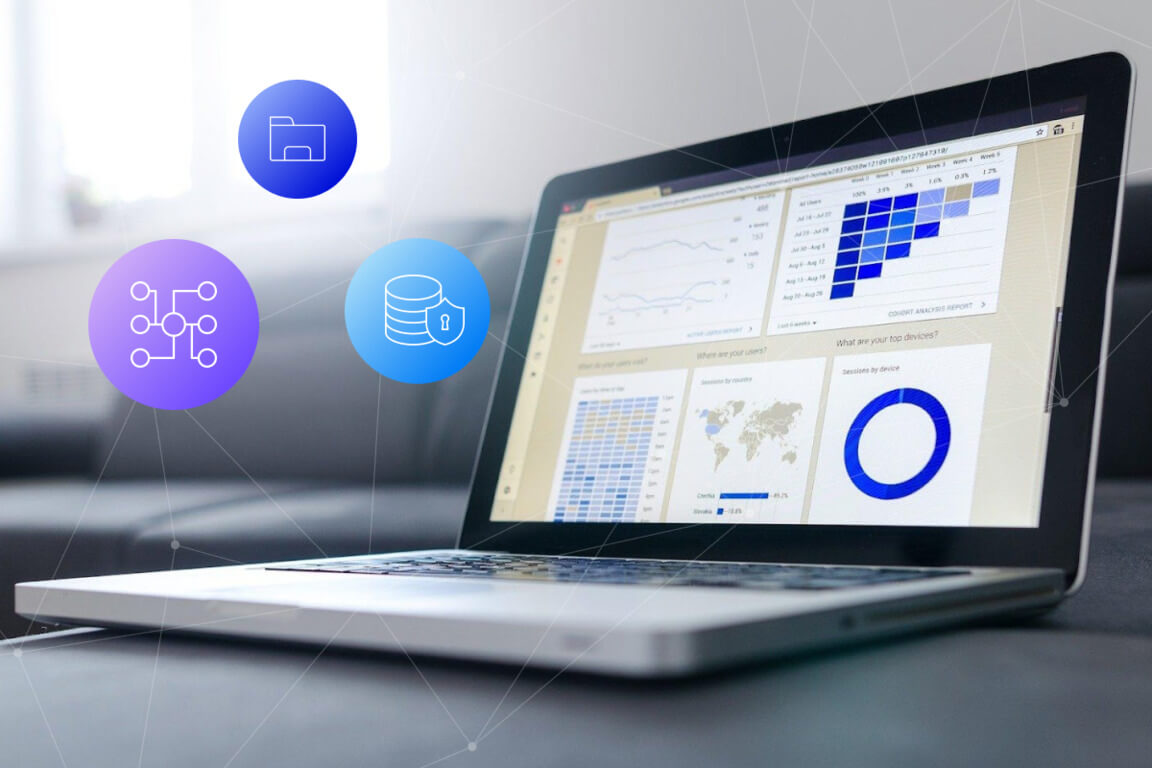
Systems that do the work with balanced files are irreplaceable. Especially if the information is the main activity or the amount of sensitive data is huge. Companies, organizations, and individuals can adhere to custom systems if they need these systems more adapted to their work processes and more secure. Though, RMSs are mostly valued for contributing to streamlining processes and eliminating the element of a sudden big loss.



